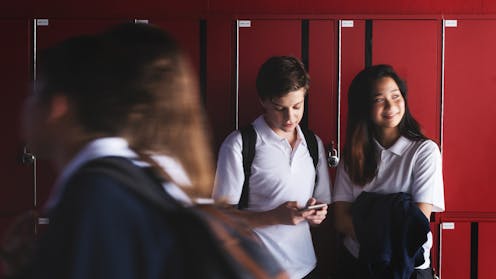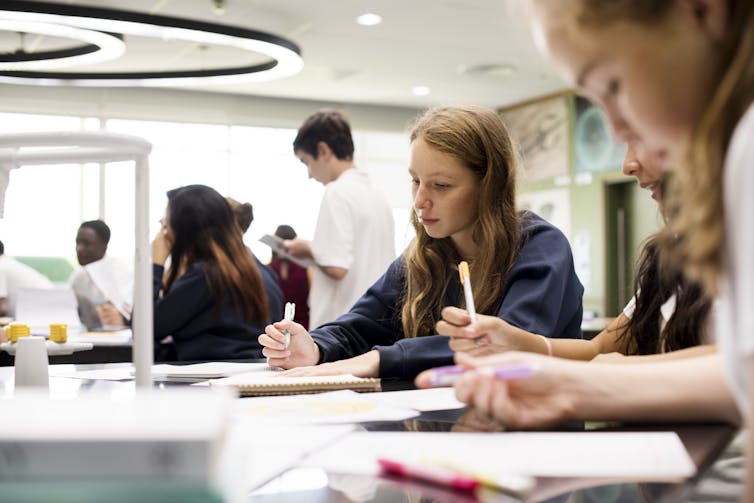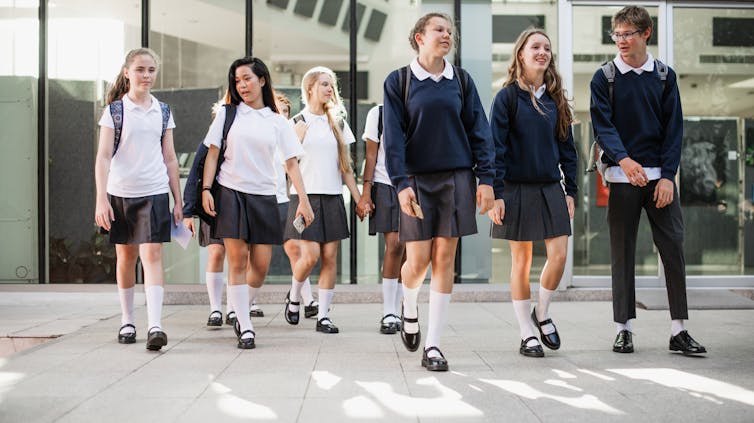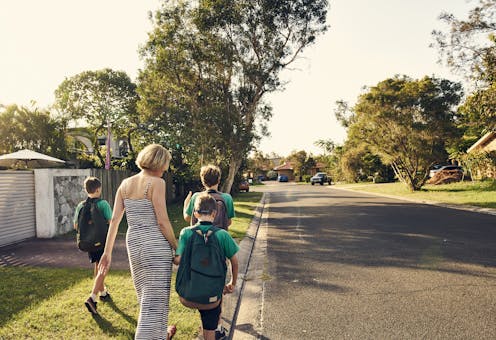
Starting high school is one of the most significant transitions young people make in their education. Many different changes happen at once – from making new friends to getting used to a new school environment and different behaviour and academic expectations.
What do young people think about this crucial time in their lives?
In our new research we spoke to ten students in Year 7 at a co-educational school in Perth, Western Australia in 2023. Students were interviewed in Term 3 and asked to share their thoughts about what the move to high school was like. We used a focus group to allow young people to explore their thoughts in a supportive environment.
Our current study is on a small scale. But it contributes to the growing body of research showing the importance of supporting students’ emotional wellbeing during school transitions.
Big changes take time
One of the key things students discussed was how it took time to adjust to high school.
This included managing their time to fit in new study commitments, such as homework for multiple subjects. They also had to locate new classrooms: “trying to go around the school and find them was hard”.
They noted how “different teachers have different rules […] so you gotta remember that and where you’re going”. Other students explained how there was “too much stuff for my brain to handle”.
As another student talked about the pressure to be organised:
It’s hard work going in from Year 6 primary school to Year 7. I can tell you that much. […] we’ve been expected from the first week to remember our timetable, be organised, not forget anything and know our classes […] it’s a lot of pressure and stress on you because we also get bucketloads of homework as well because we don’t get enough time to finish our work.

Rawpixel.com
Adjusting to new friendship dynamics
Previous research has found when students start high school they are “more focussed on building new relationships and maintaining old friends”. They will then shift their focus to academic matters “later on”.
Students in our study certainly discussed the importance of friends. Some students had looked forward to making new friends and were enjoying being able to “make some proper friends that you can actually have a proper relationship with”.
Others spoke about their worries about not knowing anyone or having any friends (“I was always questioning myself. Am I going to make any friends?”). Others found their friendship groups changed from primary school (“I don’t talk to them as much […] it’s kind of not the same with them).
Students also talked about how working out new friendships took time.
you’ll find that yes, you might be friends […] but then you might find that they’re not the person who you thought they would be and you might not really want to be with them.
A lot more work
All students observed there was an increased workload of Year 7. Many students said they did not feel prepared for the volume of work and the time frames in which they were expected to complete it.
Some students “found it stressful to keep on top of work”. For some “the homework load and the amount of tests that we have and assessments” were the least enjoyable features of high school. They said it felt like in Year 7, “everything is about academics”.
But students also said they enjoyed being able to do a wider range of subjects. And the hands-on subjects such as cooking and design and technology helped them balance out more intense, academic subjects.

Rawpixel.com/Shutterstock
What can help Year 7s?
While students outlined challenges about moving from Year 6 to Year 7, they also identified three things to help make the transition easier.
1. A support network: students stressed it was important to have a support network, whether informally through fellow students, staff or a parent or formally with counselling. This is something schools can encourage with buddy groups or peer support.
2. Extra time: students talked about the importance of teachers giving them extra time to complete work and to get used to new places and processes at high school. They were grateful to teachers who “let you develop in the classroom”.
3. Transition programs: students said specific Year 7 transition programs – that prepare students for the new logistics and expectations – would also help. One student suggested a term in Year 6 should “replicate what it feels like to be in Year 7”.
![]()
The authors do not work for, consult, own shares in or receive funding from any company or organisation that would benefit from this article, and have disclosed no relevant affiliations beyond their academic appointment.
More Info: Read More




